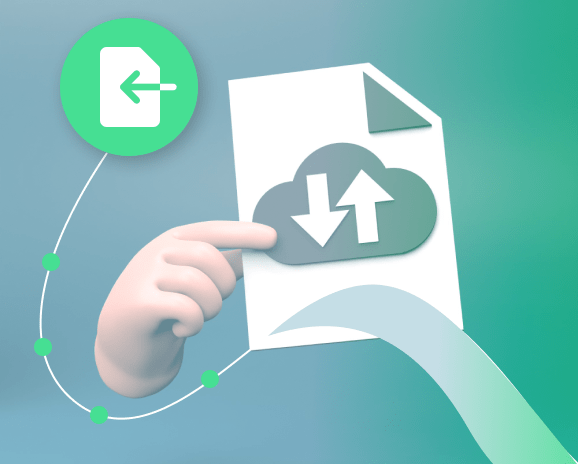Feature Friday: Streamlining Testing with Quick Imports: Excel and JSON Simplified

Wildfires across the northern regions of the United States and Canada have been detrimental to air quality across the Chicago land area over the past few weeks. They have affected a range of states, causing a variety of alerts and notifications, ensuring people are aware of the quality changes, and encouraging residents to stay indoors as much as possible. And as the air is thick and dark, we cannot help but consider the possibility of importing in a nice ocean breeze from a remote island where there is little to no pollution, breathing in the brisk and high-quality air. This thought transitions us seamlessly into Qyrus’ automated testing solution, which offers quick imports of test scripts from Excel or JSON file formats and builds them into automated test scripts. This week’s Feature Friday is brought to you by Joyal and Milton, who will discuss these imports and how they make test building a true breath of fresh air!
Tell us more about the Quick Imports feature offered by Qyrus and its use cases.
Joyal:
Great Question, the quick imports feature enables users to fill out an Excel or JSON file, and as long as it is in the proper format the files can be imported into Qyrus and automatically built into executable test scripts.
Milton:
This feature truly simplifies test building and gives users another, streamlined test-building option. Whether it is making test building accessible to personas across the QA cycle or allowing targeted testers to build, save, or maintain scripts while offline or in transit, using a local environment, or having a strong familiarity with JSON or Excel.
What is the Quick Imports feature’s overall impact on the testing process?
Milton:
This feature directly affects the test-building process, making it more efficient while reducing effort. Streamlining the transition from build to execute offers a simple way to build and manage scripts that still offer repeatable execution and parallel testing capabilities across a range of browsers.
Joyal:
Exactly, it may be much easier to clone, merge, and alter scripts using a text editor format. Losing none of the power that Qyrus’ automated testing solution offers, simply simplifies and streamlines the test building and maintenance process.
How might Quick Imports help testers, developers, and business technologists? What value can this feature bring?
Milton:
Developers can build tests without ever having to open or learn a new testing solution. Simply fill out the required information within an Excel or JSON template and import it directly into Qyrus as an automated test script. This allows developers to build comprehensive test scripts in a highly efficient manner.
Joyal:
This allows testers to take a massive shift left. Using existing templates during development, testers can create expansive testing flows, fill out relevant step details and quickly share files with developers to fill out the remaining information such as the elements locator and locator value. Testers can create suites covering every feature of the application before release, import them into Qyrus, and execute repeatable across the required infrastructure. This increases efficiency while maximizing coverage.
Milton:
This also makes testing more accessible for business analysts. With a foundation in user requirements and common user journeys, business analysts can build tests to ensure high-value features and functionalities are covered across the testing and QA cycle and ultimately functioning properly. Furthermore, Excel, as well as JSON, are commonly used file formats and the input templates are already laid out, minimizing the learning curve.
Does the same or similar functionality exist without Qyrus, and how do competitors address similar problems?
Joyal:
There are very few solutions today that offer an out-of-the-box import option with test building, and even fewer which provide simple data templates that are automatically integrated into automated, repeatable test scripts.
Milton:
The simplicity of test building using an Excel or JSON template speaks for itself. Being able to take those scripts and execute them may also be functionality that can be found elsewhere. But, by taking those files, and importing them into Qyrus, you now have every capability that Qyrus offers across that given script. This includes parallel testing and execution capabilities, infrastructure requirements, AI/ML capabilities, organizational structure, and more. This is the unique value that Qyrus offers in relation to existing technologies as well as market competitors.
How do you see Qyrus’ Quick Imports impacting day-to-day operations across organizations?
Joyal:
The quick imports functionality is truly the most powerful across daily implementations. In the simplest terms, it allows anyone who is building tests another simple-to-use and easily importable format. Excel and JSON formats are consistently used across organizations of all shapes and sizes, and can now also be used to build automated test scripts. At the same time, the feature makes testing more accessible, as test creation can be done in a multitude of environments and conditions.
Milton:
Exactly, it makes the test-building process significantly more inclusive. If there is a commonly used feature that a business analyst wants to ensure is working properly, it is now possible to fill out a form, import, and execute with a video of the executions and screenshots immediately available to you. Another example is before a sales pitch, members can quickly ensure the functionality is working for the upcoming release and confidently pitch a roadmap-based functionality to clients ahead of time while functionally testing the application in tandem. Furthermore, building tests across any environment so long as you can open your machine maximize accessibility and efficiency across day-to-day test building.
These features and functionalities set the standard for simple, steadfast, and efficient test building. Allowing users, a range of building options, pre-built templates, and execution is unique in and of itself. Furthermore, not just executing scripts but importing them into Qyrus script-building format and arming these scripts with all existing Qyrus features and functionalities make this feature both unique and powerful. Testing simplicity, efficiency, and accessibility are all affected by this feature, increasing speed to market, test case coverage, and QA team collaboration. That is all for this week but make sure to join us for next week’s Feature Friday where we will continue discussing Qyrus features and functionalities which truly enhance the QA lifecycle.






